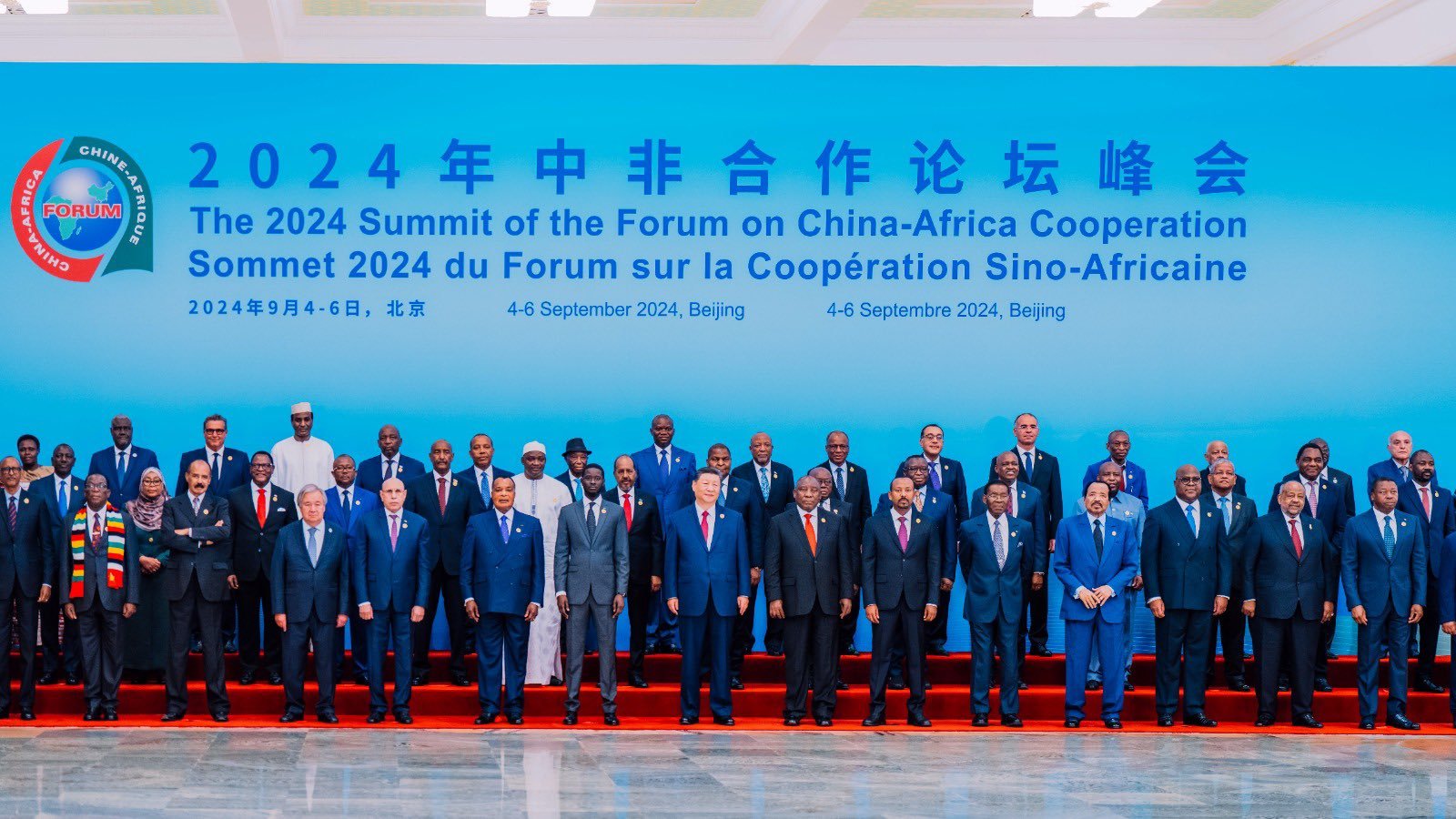
While much of the Western world remains focused on the Russia-Ukraine and Israel-Palestine conflicts, China shifted its attention to strengthening economic engagement with Africa. The Forum on China-Africa Cooperation (FOCAC) opened in early September, the first in person meeting post-COVID, and was attended by at least two dozen heads of state or government.
The event is touted as a platform where China announces its financial commitments to the entire continent and individual countries line up to secure support. Given the billions of dollars that Beijing commits, the event is watched as a barometer of the state of the country’s relations with Africa.
The FOCAC is meant to demonstrate Beijing’s growing global presence despite rising discomfort in the U.S. over China’s amassing clout, especially amongst the ‘global south.’ This courtship is also a part of China’s geopolitical competition with the U.S., which has intensified in recent years.
This tri-annual forum, therefore, has been the highlight of many African leaders’ diplomatic engagements for nearly a quarter of a century, since its inaugural meeting in 2000, according to the Economist.
Going into this year’s FOCAC, there was a sense of skepticism amongst some African countries and the China bashers over the extent of its commitments to Africa. This was perhaps due to the drop in pledges at the 2021 FOCAC (around $40 billion – a third less than the previous meetings).. But to the chagrin of critics, President Xi Jinping opened the Forum with pledges of U.S. $51 billion in financing for Africa for the next three years—a significant increase from the previous summit, though still less than commitments made in the past.
Xi also pledged to exempt 33 of Africa's least developed countries from import duties, aiming to “help turn China’s big market into Africa’s big opportunity.”
He pledged a billion yuan (approx. $140 million plus) in grants for military assistance, training for 6,000 military personnel and 1,000 law enforcement officers from Africa, and invited 500 young African military officers to visit China.
Xi, striking a fraternal chord with the continent, assured, “our history will not go back to the old days of colonialism and Cold War confrontation. Africa should not become a wrestling ground for major countries.”
Premier Li Qiang also reaffirmed China’s commitment to speed up negotiations and the signing of framework agreements on economic partnership with African countries, and that he would grant access to the Chinese market for African agricultural exports and “high-quality” goods. “China is keen to deepen supply chain ties and industrial integration with Africa in pursuit of shared benefits and development,” he said.
The leaders released the 2025-2027 action plan pledging to “keep the global industrial and supply chains stable and smooth, oppose all forms of unilateralism, protectionism and maximum pressure, and oppose erecting walls and barriers, decoupling and supply disruption.” China has successfully cultivated strong alliances with African nations, positioning the continent as a strategic partner in counterbalancing U.S. efforts to constrain China's economic and geopolitical rise.
Analysts have pointed out that China appears to be shifting its focus from large-scale infrastructure investments to prioritizing smaller, more targeted projects, often referred to as "small and beautiful" initiatives. But at the same time, a closer study of the nature of Chinese funding indicates that the forms of financial support are actually quite diverse. It is now more a mixture of grants, loans and investments both from the state and through banks.
The emphasis on smaller, greener initiatives were meant to assuage concerns in Africa about unprofitable megaprojects, said Jana De Kluiver, a research officer at the Institute for Security Studies in Pretoria. “It has this aspect of making sure that the China-Africa relationship, at least on a global scale, doesn’t look predatory,” she said.
China’s latest pledges demonstrate that Beijing remains engaged for the long-haul as the largest provider of economic aid to Africa. The continent too understands China’s value as a partner in its growth after centuries of European exploitation.
Mohamed Ould Ghazouani, the president of Mauritania and chairman of the African Union, declared that the China-Africa partnership is a leading model for “South-South cooperation.” He also noted that the African continent was in “dire need of China’s assistance in establishing security and stability, promoting growth and strengthening its voice in international forums.”
China strongly maintains its position as the largest trading partner of the African continent. With surging demand for African minerals essential to the green energy transition, the China-Africa trade volume in 2023 reached a record $282 billion, more than double that of the second-largest trading partner, India.
Much of China's success, in fact, can be attributed to Beijing's strategic approach in engaging with countries in the Global South. China has positioned itself as a partner to developing countries, particularly in Africa, in contrast to the West's often perceived condescending attitude. It promotes events like the China-Africa summits as a "grand reunion of the China-Africa big family." Unlike Western powers, China does not carry the historical burden of colonization and its associated legacy of exploitation across the African continent.
And the success of China's outreach is reflected in the support it garners within international organizations and its access to critical minerals essential for the future of renewable energy.
The fact that China has maintained these triannual summits that continue to draw the bulk of African leadership over two decades is a huge political achievement. Investments now will allow China to reap rewards through generations. But given Africa’s history, China should remain mindful of even the faintest hint of predatory engagement with the continent.
With all its commitments to Africa and BRI, China hopes to send a message that Beijing offers a more robust alternative to the U.S.-led global order and has ample support outside the exclusive western dominated world.
